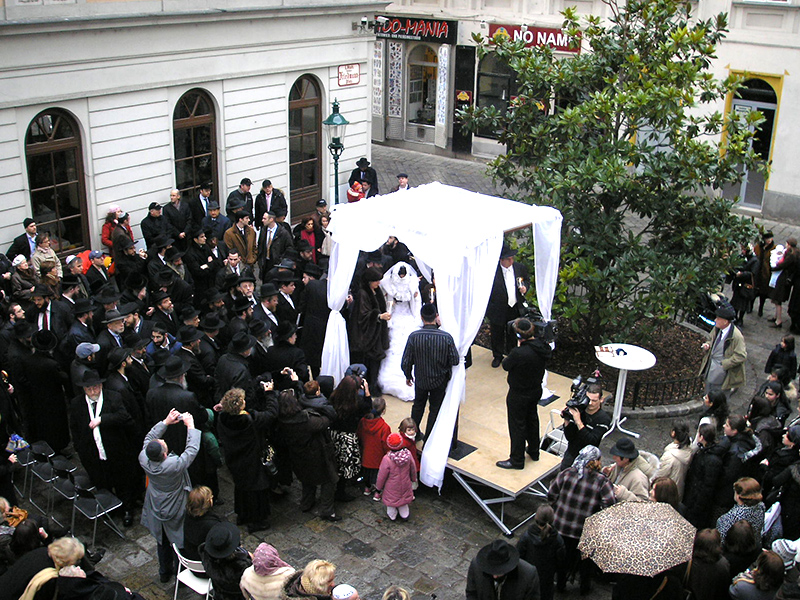Despite the establishment of many new institutions that train non-Orthodox rabbis for the United States and other countries, including Canada, and notwithstanding the large proportion of female graduates, it seems that the total number of those who nowadays want to serve the Jewish people as rabbis is smaller than when there were few seminaries and only men were ordained.
Recruitment difficulty isn’t given as a reason for the decision last September by the Reconstructionist Rabbinic College in Philadelphia to admit students with non-Jewish spouses. But it’s impossible to ignore it as an important factor in this radical change of policy.
According to college president Rabbi Deborah Waxman, the change is primarily the result of accepting the reality that more than half of all American married Jews have non-Jewish spouses. Writing in the Huffington Post, she stated that her college has “chosen to stop fighting against intermarriage and to concentrate on building a vital Jewish future.” It seeks to help those who live in mixed families yet “want to remain Jewish and to live in Jewish community.” Rabbis with non-Jewish spouses, she suggests, will not only reflect this reality, but they’ll be better equipped to reach out to intermarried Jews.
Janet Eisner, editor of the Forward, disagrees. Though only about one per cent of Jews in the United States are card-carrying Reconstructionists, the movement has always had “an outsized effect on American Jewry.” She reminds her readers that Reconstructionism often embraced progressive stands years or decades before the larger liberal denominations followed. The two small seminaries that already admit students with non-Jewish spouses are on the margin of Jewish life. Not so the Reconstructionist College.
Eisner’s argument is cogent: “Clergy don’t reflect their congregations. Clergy lead their congregations – and do so not as leaders who bow to the fashion and trends of the moment, but as vivid exemplars of our best norms and intentions, as strong aspirational figures.”
Unlike say a Jewish studies professor at a university, a rabbi doesn’t just teach Torah, a rabbi is Torah. The authentic exponent of Judaism must embody its values and serve as a Jewish role model. As tradition has it, this means also that what the rabbi does in private is of concern to the community. It’s impossible to see how a Jewish spiritual leader whose spouse is an adherent of another faith or who has a Christmas tree at home for his or her non-Jewish children can qualify as a rabbi reflecting authentic Jewish life.
Of course, the rabbi must reach out to the entire community, including the intermarried. Integrating such families is a sacred task today. But can a rabbi do so by being part of the problem rather than the solution?
We know from experience that what one of the three mainstream liberal movements – Reform, Conservative, Reconstructionist – decides, the others soon follow, because they compete for the same potential members. Recruitment isn’t only a problem for rabbinic schools but also for congregations.
As I wrote not long ago, I’ve now come to accept the reality, indeed the necessity, that a person should be a full member of a congregation if she or he has only one Jewish parent – mother or father. But what’s sufficient for members of congregations cannot be enough for those who lead them.
We therefore have good reason to applaud the stance of Dorshei Emet, the Reconstructionist congregation in Montreal that decided to distance itself from the decision to ordain intermarried rabbis. Its sister congregation in Toronto, we’re told, hasn’t yet declared its intentions. Let’s hope it follows suit.
Even if accepting intermarried rabbis reflects the spirit of our age, we have much to learn from Charles Spurgeon, a 19th-century Baptist preacher in England, who noted “the distinction between serving your own generation and being a slave to it.” Following current trends in the guise of serving the people may turn rabbis into slaves.
